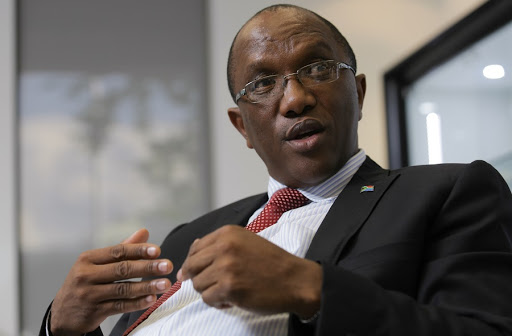By Thapelo Molefe
The Blue Crane Route Local Municipality in the Eastern Cape on Tuesday admitted to serious financial and administrative setbacks during a presentation to Parliament’s joint oversight committees on Cooperative Governance and Traditional Affairs (CoGTA) and the Auditor-General.
The municipality, which had previously attained a seven-year run of unqualified audit opinions, told the joint committee that it had regressed to a qualified audit outcome in the latest financial year because of infrastructure valuation problems, poor revenue collection, and long-standing debt owed to Eskom.
Mayor Bonisile Manxoweni, leading the municipal delegation, acknowledged that the once-stable municipality had suffered a decline in both its financial health and service delivery capacity.
“We regressed from unqualified audit opinion to qualifications,” he said. “However, we have developed an action plan that is tabled at every council meeting to monitor progress in addressing the Auditor-General’s findings.”
Chief Financial Officer (CFO) Nigel Delo said that by June, the municipality had accumulated R40.6 million in irregular expenditure, R345,000 in fruitless expenditure, and R41,000 in unauthorised spending.
He said while the council had adopted a reduction strategy to curb financial mismanagement, the municipality continued to struggle with capacity shortages.
“Our organogram provides for 148 positions, but less than half are filled,” Delo told the committee.
“We are finding it difficult to attract the necessary expertise, especially in critical committees such as Bid Evaluation and Bid Adjudication.”
The municipality’s financial regression was linked to problems in its infrastructure asset register, which contains assets valued at R1.3 billion. According to Delo, the Auditor-General could not verify the completeness of R820 million worth of infrastructure assets, a key reason for the audit qualification.
“This is a huge challenge for a small municipality like ours,” Delo said.
“Treasury recommends that 8% of asset value should be set aside for maintenance. That means we should be budgeting close to R70 million annually, which we simply cannot afford.”
The municipality also faces crippling debt. Delo confirmed that Blue Crane Route owes Eskom R207 million, although negotiations are underway to reach a payment settlement.
“Our financial crisis deepened during the years of loadshedding,” he said.
“When power cuts began, the municipality could not sell electricity to customers, which affected our revenue and our ability to pay Eskom.”
The municipality also owes about R1 million to the Department of Water and Sanitation but has managed to remain up to date with payments to the South African Revenue Service, SALGA, and pension funds.
Delo painted a grim picture of declining revenue collection, saying even government departments and businesses were not paying their municipal bills.
“The norm is a payment rate of 95% and above. We are way below that,” he said.
“Even the state owes us money, and most of our households are registered as indigent.”
He further mentioned that a significant portion of outstanding debt is owed by municipal employees themselves, which the municipality is attempting to recover through internal disciplinary measures.
The municipality has also faced a backlash from game farmers following its 2019 property valuation roll, which reclassified agricultural land to business rates. The affected landowners challenged the new rates in court, further affecting municipal revenue.
Despite the setbacks, Delo said the municipality is working closely with the Eastern Cape Provincial Treasury to finalise a Financial Recovery Plan by the end of October.
“Council has already approved a voluntary recovery framework,” he said.
“It is based on four key pillars of stabilisation, revenue improvement, expenditure control, and service delivery restoration.”
He added that the municipality is also investing in Local Economic Development (LED) projects through partnerships with the Cacadu Development Agency and the Sarah Baartman District Municipality. A newly appointed LED manager is leading these initiatives, which aim to stimulate small business activity and infrastructure renewal.
INSIDE METROS

